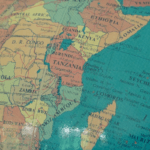Expected Outcome
This topic aims at supporting activities that are enabling or contributing to several expected impacts of destination 3 “Tackling diseases and reducing disease burden”. To that end, proposals under this topic should aim for delivering results that are directed, tailored towards and contributing to all of the following expected outcomes:
- The EU is reinforced as an internationally recognised driver of research and innovation in rare diseases (RD) and thereby substantially contributing to the achievement of the Sustainable Development Goals related to rare diseases;
- Research funders align, adopt and implement their RD research policies allowing for the optimal generation and translation of knowledge into meaningful health products and interventions responding to the needs of people living with a rare disease across Europe and globally.
- The RD research community at large benefit from and use an improved comprehensive knowledge framework integrating the EU, national/regional data and information infrastructures to improve translational research.
- People living with a rare disease benefit from a more timely, equitable access to innovative, sustainable and high-quality healthcare, taking stock of highly integrated research and healthcare systems.
- Researchers, innovators – as well as people living with a rare disease and their advocates (as co-creators) – effectively constitute and operate into an integrated research and innovation ecosystem to deliver cost-effective diagnosis and treatments.
- Public and private actors, including civil society (e.g. NGOs, charities), establish coordinated and efficient multi-stakeholder collaborations at EU and national (including regional) levels, allowing for more effective clinical research, for example aiming at improved success rates of therapeutic development.
Scope
The Partnership should contribute to priorities of the “Communication on effective, accessible and resilient health systems” (COM(2014) 215 final), the “Communication on enabling the digital transformation of health and care in the Digital Single Market; empowering citizens and building a healthier society” (COM(2018) 233 final) and support the objectives of the new EU4Health Programme (COM(2020) 405 final, Regulation (EU) 2021/522).
This partnership should also contribute to achieving the objectives of the Pharmaceutical Strategy for Europe, in terms of fulfilling unmet medical needs (e.g. for rare diseases with so called “orphan medicinal products”) and ensuring that the benefits of innovation reach patients in the EU.
Thanks to its capacity to bring together different stakeholders (e.g. research funders, health authorities, healthcare institutions, innovators, policymakers), the Partnership will create a critical mass of resources and to implement a long-term Strategic Research and Innovation Agenda (SRIA).
The co-funded European Partnership on rare diseases should be implemented based on the priorities identified in the SRIA and through a joint programme of activities ranging from coordinating and funding transnational research to highly integrative and community-driven ‘in-house’ activities such as innovation strategies for the efficient exploitation of research results, EU clinical trial preparedness activities, optimisation of research infrastructures and resources, including networking, training and dissemination activities. It should be structured along the following main objectives:
- Launch joint transnational calls for RD research and innovation priorities as defined in the SRIA, resulting in financial support to third parties, based on the annual work plans;
- Develop a European Clinical Research Network to accelerate the clinical trial readiness of the RD research community in Europe, to improve the research and innovation potential of RD stakeholders and facilitate the cost-effective clinical development of new therapies;
- Develop and consolidate the capacity building of the RD data ecosystem by supporting the federated access/sharing of FAIR research data, information resources to ensure the effective and fast translation of the research results to safe and effective health innovations;
- Integrate basic, pre-clinical and clinical research to reduce the burden for people living with a rare disease.
- Support research in relevant medical fields and intervention areas (prevention, diagnosis, treatment), while improving the utilisation of existing health technologies in clinical practice;
- Support the scientific work of the International Rare Disease Research Consortium.
Deadline: 19 September 2023
More information: Funding and Tenders






Leave a Reply